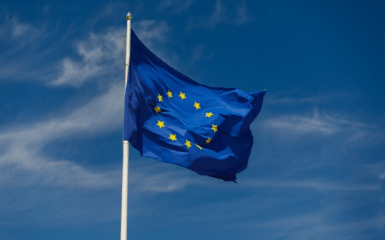The European Council extended until July 27, 2025 the restrictive measures in connection with Iran's military support of the Russian Federation's war against Ukraine and armed groups and formations in the Middle East and the Red Sea region.
Points of attention
- Currently, Iran's arsenal of missiles and drones is the largest in the Middle East, with more than 3,000 missiles.
- The European Council called on third parties, including Iran, to stop supporting Russia's war against Ukraine.
- Iran doubled the production of missiles and drones after the agreement with the Russian Federation, which poses serious threats to stability in the region.
- The European Council will take further restrictive measures against Iran, particularly regarding unmanned aerial vehicles and missiles, to ensure security in the region.
Sanctions against Iran for supporting Russia's war have been extended for a year
As noted, the sanctions regime applies to 12 individuals and nine organizations.
The assets of these persons are frozen, and providing them with funds or economic resources, directly or indirectly, is prohibited. In addition, these individuals are subject to a travel ban to the EU
In its conclusions of March 21 and 22, 2024, the European Council called on third parties, including Iran, to immediately stop providing material support for Russia's war against Ukraine.
Also, in its 17 and 18 April 2024 conclusions, the European Council reaffirmed its commitment to further restrictive measures against Iran, particularly regarding unmanned aerial vehicles (UAVs) and missiles. Finally, the European Council confirmed that the EU remains fully committed to promoting de-escalation and security in the region.
In addition, on May 14, 2024, the Council expanded the scope of the EU's restrictive measures in connection with Iran's military support for Russia's war against Ukraine, including both drones and missiles, as well as Iran's drone and missile program support of armed groups and entities in the Middle East East and Middle East. the Red Sea region.
Iran doubled the production of missiles and drones after the treaty with Russia
Currently, Iran's arsenal is the largest in the Middle East and is estimated at more than 3,000 missiles.
This armament includes modifications designed to carry conventional and nuclear warheads.
Satellite images show that more than 30 new structures are visible at the Modarres military base in March and the Khogyr industrial complex in April.
The photos show many buildings surrounded by large earthen ramparts. Experts associate these shafts with the production of rockets, they are probably designed so that an explosion in one building does not lead to detonation in neighboring structures.
On February 21, 2024, the Reuters agency reported that Iran sent 400 surface-to-surface ballistic missiles to Russia. The missiles were of the Fateh-110 family, including the hypersonic Zolfaghar. Deliveries allegedly began at the beginning of January, and there were already at least four transmissions.








